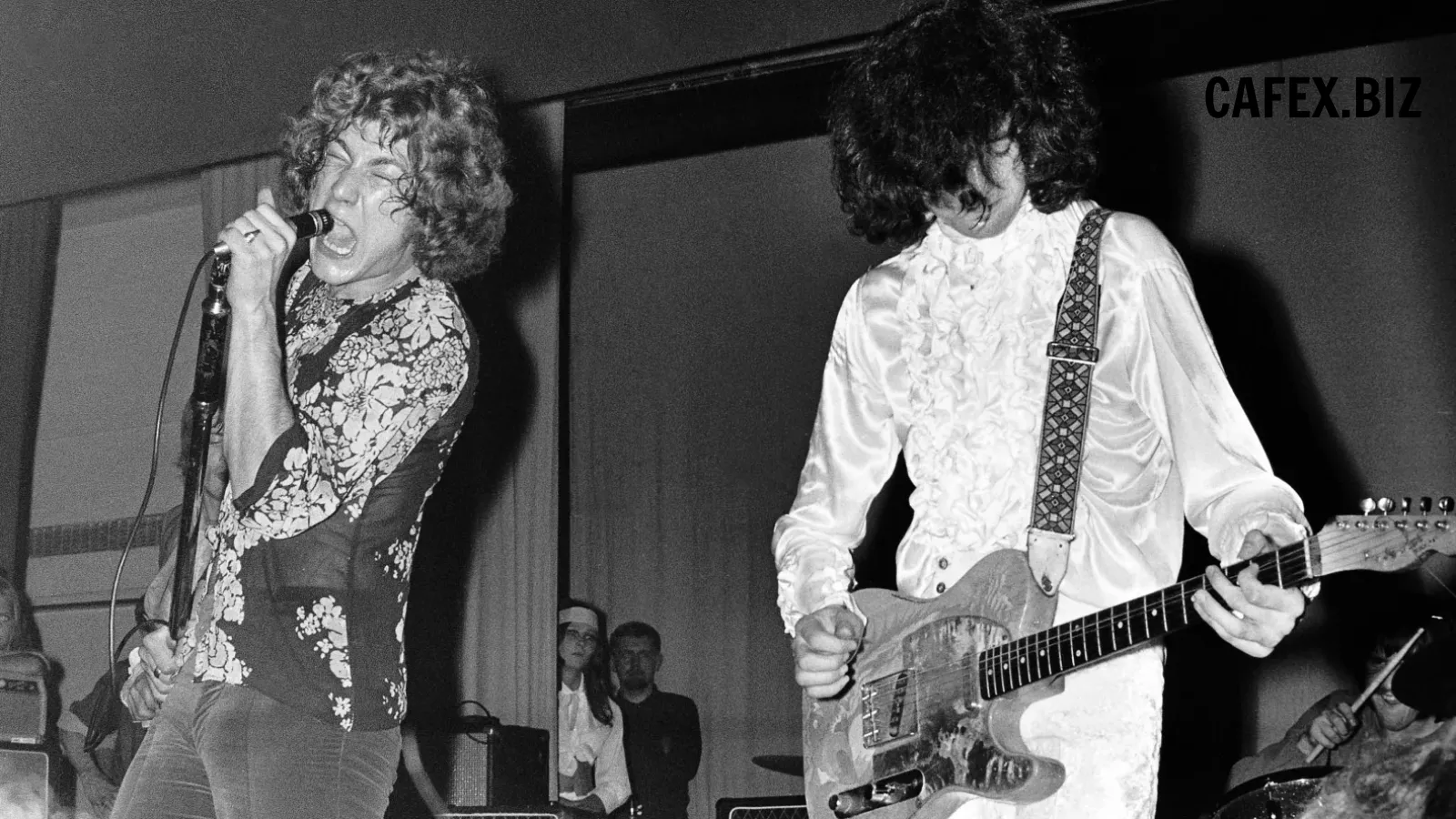The 1970s were a defining decade for rock music, and few bands left a more indelible mark on this era than Led Zeppelin. Emerging from the late 1960s, Led Zeppelin was already a formidable force in rock, but it was the 1970s that saw them ascend to the zenith of their creative powers and popularity. With a string of iconic albums, epic live performances, and a near-mythical aura, Led Zeppelin became the quintessential rock band of the '70s. In this comprehensive exploration, we will delve into Led Zeppelin's journey through the '70s, their studio albums, legendary live shows, the band's enduring impact on music and culture, and the challenges they faced in a tumultuous decade.
A Roaring Start

The 1970s began with Led Zeppelin riding high on the success of their previous albums, particularly "Led Zeppelin II" and "Led Zeppelin III." Their self-titled debut album had already established them as a powerful force in rock music, and the early '70s promised even greater heights.
The first major release of the decade was "Led Zeppelin IV," often referred to as "Four Symbols" or "Zoso" due to its cryptic cover. This album, which included iconic tracks like "Stairway to Heaven," "Black Dog," and "Rock and Roll," is often considered one of the greatest rock albums of all time. It showcased the band's versatility, blending hard rock, folk, and blues influences into a masterpiece that still captivates listeners today.
The Pinnacle of Creativity

Following the success of "Led Zeppelin IV," the band continued to explore new musical territories, pushing the boundaries of what rock could be. "Houses of the Holy," released in 1973, was a departure from their earlier bluesy sound, incorporating funk and reggae influences. Tracks like "The Song Remains the Same" and "D'yer Mak'er" showcased Led Zeppelin's evolving musical palette.
"Physical Graffiti," a double album released in 1975, solidified their status as rock giants. This sprawling, ambitious work included a mix of old and new tracks and featured epic compositions like "Kashmir" and "In My Time of Dying." The album was a testament to Led Zeppelin's ability to create music that was both intricate and emotionally powerful.
The Live Experience

One of the defining characteristics of Led Zeppelin's presence in the 1970s was their electrifying live performances. The band's live shows were legendary for their energy, improvisation, and sheer spectacle. Led Zeppelin's ability to translate their studio recordings into unforgettable live experiences solidified their status as one of the greatest live acts in rock history.
One particular highlight of their live career was the 1973 tour, which supported the "Houses of the Holy" album. This tour included the band's record-breaking performance at Tampa Stadium, where they played to an estimated 56,800 people, a number that stood as a Guinness World Record at the time. The tour's success was a testament to the band's popularity and their ability to draw massive crowds.
Challenges and Transitions

The 1970s also brought its share of challenges for Led Zeppelin. The excesses of the rock 'n' roll lifestyle took a toll on the band members, particularly on drummer John Bonham and singer Robert Plant. The relentless touring and the pressures of stardom led to burnout and physical and emotional exhaustion.
Tragedy struck in 1975 when Robert Plant's young son, Karac, passed away from a stomach infection. This heartbreaking event deeply affected Plant and the band, leading to a hiatus and a reevaluation of their priorities. The break gave the members a chance to rest and recover, setting the stage for a return to the studio with a renewed sense of purpose.
The Latter Half of the '70s

In 1976, Led Zeppelin released "Presence," an album recorded in just 18 days during a period of personal and creative turmoil. The album's raw and hard-hitting sound was a departure from their previous work, reflecting the band's desire to return to a more straightforward rock approach. Tracks like "Achilles' Last Stand" and "Nobody's Fault but Mine" showcased their resilience and their commitment to their craft.
The band embarked on their final tour of the 1970s in 1977. The tour was marked by more extravagant stage setups and performances that reached new levels of intensity. However, it was also marred by several controversies, including incidents of violence and allegations of excess.
Legacy and Influence
Despite the challenges and controversies, Led Zeppelin's influence on rock music continued to grow throughout the 1970s. The band's unique sound, the virtuosity of its members, and the timeless quality of their songs cemented their place in rock history. Their fusion of blues, hard rock, and folk elements provided a blueprint for countless bands that followed.
"Stairway to Heaven," in particular, became an anthem of the 1970s and remains one of the most enduring and iconic rock songs ever recorded. Its impact on rock music and popular culture is immeasurable, and it continues to be celebrated and analyzed by musicians and fans alike.
The End of an Era

The 1970s came to a close with the tragic death of John Bonham, the band's powerhouse drummer, in September 1980. Bonham's passing marked the end of Led Zeppelin as a band, as the remaining members decided that they could not continue without him.
The band made the painful decision to disband, and they released a statement to the public expressing their grief and gratitude to their fans. Led Zeppelin's final album, "In Through the Out Door," was released shortly before Bonham's death, and it represented another departure from their earlier sound, incorporating more synthesizers and keyboards.

Led Zeppelin's journey through the 1970s was a rollercoaster ride of creative highs and personal lows. The decade saw them reach the pinnacle of rock stardom, with a string of iconic albums and legendary live performances that solidified their status as one of the greatest rock bands in history.
Yet, it was also a period marked by personal challenges, excesses, and tragedies. The death of John Bonham in 1980 signaled the end of an era for the band, leaving a void that could never be filled.

However, the legacy of Led Zeppelin in the 1970s endures. Their music continues to captivate new generations of listeners, and their influence on rock and roll remains immeasurable. The band's ability to push the boundaries of their own sound and redefine the possibilities of rock music continues to inspire artists across the globe.
The 1970s may have been a tumultuous decade for Led Zeppelin, but it was also the era that solidified their place in the annals of rock history. Their music, their live performances, and their larger-than-life presence continue to resonate with music lovers, ensuring that Led Zeppelin's impact on the world of rock and roll will never fade.



